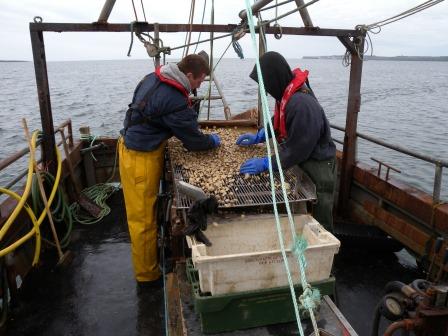Vulnerable Workers

Certain groups of workers may be more vulnerable and you may need to put additional controls in place. Vulnerable groups may include young workers, older workers, pregnant workers, workers with language disabilities or for whom English is not a first language.
Young Workers
Young workers may be more at risk of accident or injury due to their inexperience or lack of training. New crew members or young people who join the boat for the first time need to be fully supervised and trained in the general working and operation of the boat until they have gained experience to work safely and competently onboard. Before going to sea for the first time, they must complete the BIM Basic Safety Training Course.
Older Workers
Older workers are generally less likely to have accidents than their younger counterparts. However, when an accident occurs it tends to result in more serious injuries (i.e. permanent disability, dismemberment or death). As some functional capacities, mainly physical (e.g. decreased ability to judge the speed of moving objects) and sensory (e.g. vision or hearing) decline as a result of the natural ageing process, account needs to be taken of this with older workers.
Communication
On board communication between all crew members is most important. The skipper must ensure that each crew member fully understands what is expected of them. In particular, during the fishing operation, the crew must understand the specific instructions (calls) and hand signals. Emergency procedures should be practiced on a regular basis and the skipper must satisfy himself / herself that everyone clearly understands their roles in each situation.
In addition, where applicable, risk assessments must take particular account of risks to any pregnant women or breast feeding mothers.